Photo: Frazer Harrison/Getty Images for Coachella
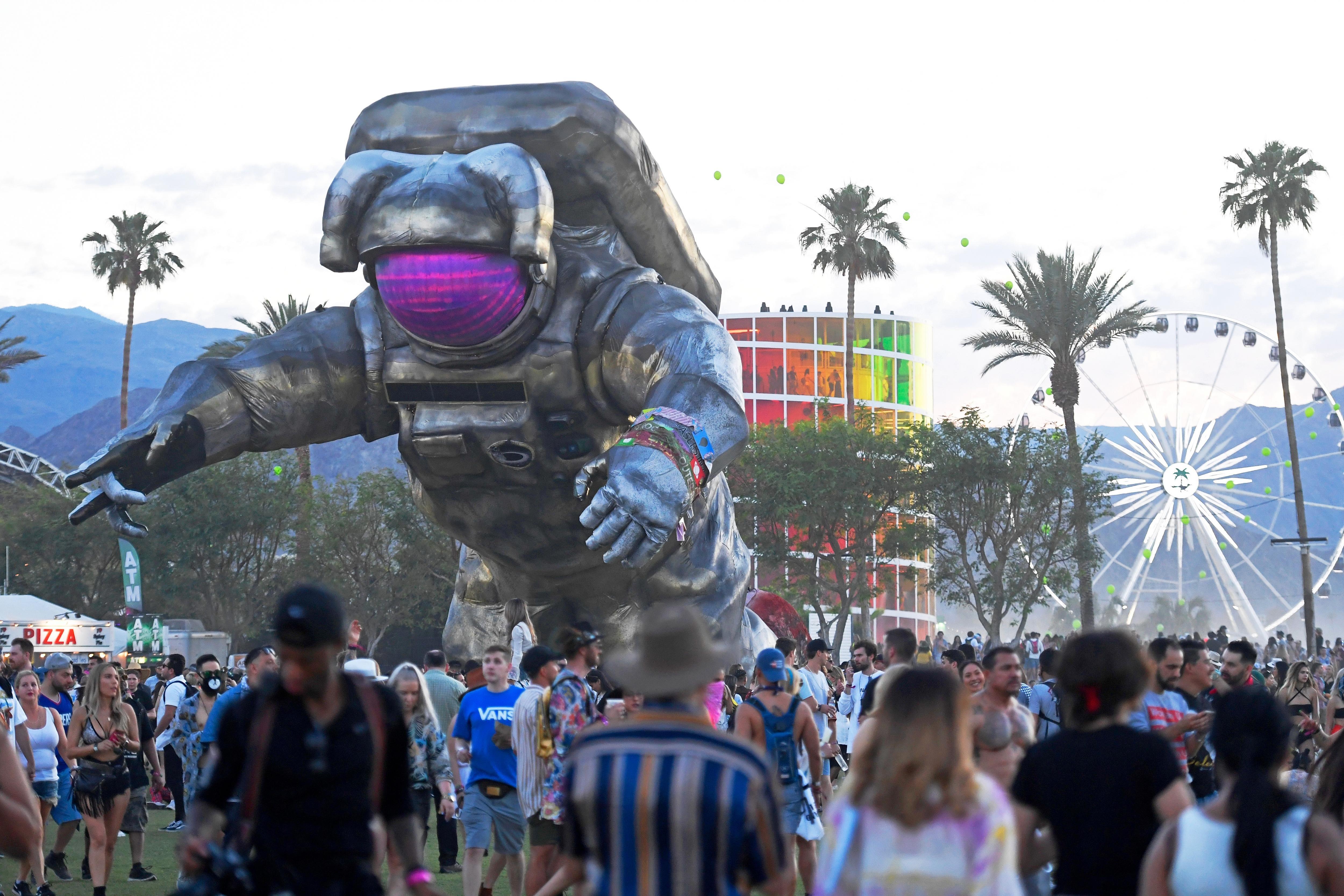
Coachella 2019
news
Report: Coachella & Stagecoach 2020 Rumored To Be Postponed Due To Coronavirus Concerns
Riverside County, home to the fests' famed Empire Polo Club, has already declared a public health emergency following the first locally contracted case of coronavirus last week
Amid the rampant spread of coronavirus fear, more domestic cases and the cancelation of Ultra Miami, SXSW and a growing number of events, rumors abound over the possible cancelation of Coachella 2020. At the time of this publishing, Goldenvoice, the organizers behind Coachella and Stagecoach (which is also rumored to be in the works for postponement) have not officially canceled or postponed either event, although many outlets have spoken to sources who claim that a plan will be announced soon.
Read More: Going Viral: The Music Industry Grapples With The Worldwide Coronavirus Outbreak
Over the weekend, Riverside County, home to the fests' famed Empire Polo Club, officially declared a public health emergency, following the first locally contracted case of coronavirus. A total of three cases are currently reported in the county, while the California total has hit the 174 mark. According to Billboard (dated March 9), conversations between Goldenvoice, local Riverside officials and artists' talent teams began this weekend in an attempt to save the fest.
The outlet alleges that the two-weekend event, currently slated for April 10-12 and 17-19, may be rescheduled to Oct. 9-11 and Oct. 16-18. Stagecoach, which is slated for April 24-26, may be moved to Oct. 23-25. According to sources, organizers hope to make a final decision by tomorrow, March 11, around whether the event should be pushed to the fall or will need to be canceled this year.
Other outlets, as well as users on Reddit and Twitter, have also widely reported on this rumor over the past 12 hours or so, including the music writer who claims to have broken the rumor in the tweet above.
In the case of both Ultra (and the adjacent Winter Music Conference in Miami) and SXSW, which were canceled on March 6, both events were previously still slated to occur later this month until local officials declared a state of emergency. Coachella Valley news outlet Desert Sun notes that while the county has declared a state of emergency, as of today, local health officials are not urging for cancelation of either Coachella or Stagecoach, as scheduled for April. While Coachella has not issued an official statement on the event's status yet, they have been keeping a winking eye on the Twitter talk.
Frank Ocean, Rage Against The Machine, Travis Scott, Calvin Harris, Lana Del Rey, FKA twigs, Flume, Thom Yorke are all are on the bill as major performers at Coachella 2020. Carrie Underwood, Thomas Rhett and Eric Church are slated to headline Stagecoach 2020. Whether the events continue as planned or are rescheduled or canceled, it is not yet known who will perform. At the time of this publishing, no artists have officially dropped out of either event.
A growing number of artists, including Madonna, Khalid, BTS and many others have postponed or canceled some of their 2020 tour legs and/or other shows due to all the uncertainty around the coronavirus and ability to travel and gather in large crowds.
Bad Bunny's 'YHLQMDLG' Breaks Records, Is The Highest-Charting Spanish Language Album Ever

Photo: Brett Carlsen/Getty Images for Spotify
news
New Music Friday: Listen To New Songs From Halsey, MGK And Jelly Roll, XG & More
As July comes to a close, there's another slew of new musical gems to indulge. Check out the latest albums and songs from Paris Hilton and Meghan Trainor, Mustard and more that dropped on July 26.
July has graced us with a diverse array of new music from all genres, lighting up dance floors and speakers everywhere.
The last weekend of the month brings exciting new collaborations, including another iconic track from Calvin Harris and Ellie Goulding, as well as a fierce team-up from Paris Hilton and Meghan Trainor. Halsey and Muni Long offered a taste of their forthcoming projects, while Jordan Davis and Miranda Lambert each delivered fun new country tunes.
In addition to fresh collabs and singles, there's a treasure trove of new albums to uncover. Highlights include Ice Spice's Y2K!, Rakim's G.O.D., Sam Tompkins' hi, my name is insecure, Wild Rivers' Never Better, Tigirlily Gold's Blonde, and kenzie's biting my tongue.
As you check out all the new music that dropped today, be sure you don't miss these 10 tracks and albums.
mgk & Jelly Roll — "Lonely Road"
Although fans anticipated Machine Gun Kelly's next release to mark his return to hip-hop, no one seems to be complaining about "KellyRoll." Embracing the trend of venturing into the country genre, mgk teams up with fellow GRAMMY-nominated artist Jelly Roll on their newest track, "Lonely Road."
The genre-blending track interpolates John Denver's classic "Take Me Home, Country Roads." However, unlike Denver's sentimental ode to the simplicity of rural life, mgk and Jelly Roll reinterpret the track through the lens of romantic relationships that have come to a, well, lonely end.
As mgk revealed in an Instagram post, "Lonely Road" was a labor of love for both him and Jelly Roll. "We worked on 'Lonely Road' for 2 years, 8 different studios, 4 different countries, changed the key 4 times," he wrote. "We finally got it right."
Halsey — "Lucky"
In another interpolation special, Halsey samples not one but two classics in their latest single, "Lucky." The song's production features elements of Monica's 1999 hit "Angel of Mine," while the chorus flips Britney Spears' fan-favorite "Lucky" into a first-person narrative.
While Halsey has always been a transparent star, their next project is seemingly going to be even more honest than their previous releases. After first revealing their journey with lupus with the super-personal "The End" in June, "Lucky" further details their struggles: "And I told everybody I was fine for a whole damn year/ And that's the biggest lie of my career."
Though they haven't revealed a release date for their next project, Halsey referred to her next era as a "monumental moment in my life" in an Instagram post about the "Lucky" music video — hinting that it may just be their most powerful project yet.
Read More: Everything We Know About Halsey's New Album
Paris Hilton & Meghan Trainor — "Chasin'"
Ahead of Paris Hilton's forthcoming album, Infinite Icon — her first in nearly 20 years — the multihyphenate unveiled another female-powered collaboration, this time with Meghan Trainor. Co-produced by Sia, "Chasin'" is a lively pop anthem about discovering self-worth in romantic relationships and finding the strength to walk away from toxicity.
"She is the sister I always needed and when she calls me sis, I die of happiness inside," Trainor told Rolling Stone about her relationship with Hilton. Coincidentally, Trainor first wrote the track with her brother, Ryan, but the pop star was waiting for the right collaborator to hop on the track — and Hilton was just that.
"We made something truly iconic together," Trainor added. "It was a bucket list dream come true for me."
Empire Of The Sun — 'Ask That God'
A highly awaited return to music after eight years, Australian electro-pop duo Empire Of The Sun are back with their fourth studio album, Ask That God.
"This body of work represents the greatest shift in consciousness our world has ever seen and that's reflected in the music," says member Lord Littlemore in a press statement.
Like their previous work that transports listeners to a different universe, this album continues that tradition with trancey tracks like lead single "Changes" and the thumping title track. Ask That God offers a chance to reflect on the blend of reality and imagination, while also evoking the radiant energy of their past songs.
Calvin Harris & Ellie Goulding — "Free"
Dance music's collaborative powerhouse, Calvin Harris and Ellie Goulding, are back with another summer hit. Their latest track, "Free," marks the fourth collaboration between the duo — and like their past trilogy of hits, the two have another banger on their hands.
The track debuted earlier this month at Harris' show in Ibiza, where Goulding made a surprise appearance to perform "Free" live. With Harris delivering an infectious uptempo house beat and Goulding's silky vocals elevating the track, "Free" proves that the pair still have plenty of musical chemistry left.
Post Malone & Luke Combs — "Guy For That"
Post Malone's transition into country music has been anything but slow; in fact, the artist went full-throttle into the genre. The New York-born, Texas-raised star embraced his new country era with collaborations alongside some of the genre's biggest superstars, like Morgan Wallen and Blake Shelton. Continuing this momentum as he gets closer to releasing F-1 Trillion, Post Malone teams up with Luke Combs for the new track "Guy For That."
The catchy collaboration tells the story of a relationship that has faded, where the protagonist knows someone who can fix almost anything, except for a broken heart. It's an upbeat breakup song that, like Post's previous F-1 Trillion releases, can get any party going — especially one in Nashville, as Malone and Combs did in the track's music video.
Forrest Frank & Tori Kelly — "Miracle Worker"
Just one month after Surfaces released their latest album, good morning, the duo's Forrest Frank unveiled his own project, CHILD OF GOD — his debut full-length Christian album. Among several features on the LP, one of the standouts is with GRAMMY-winning artist Tori Kelly on the track "Miracle Worker."
Over a plucky electric guitar and lo-fi beats, Frank and Kelly trade verses before joining for the second chorus. Their impassioned vocals elevate the song's hopeful prayer, "Miracle Worker make me new."
Their collaboration arrives just before both artists hit the road for their respective tours. Frank kicks his U.S. trek off in Charlotte, North Carolina on July 31, and Kelly starts her world tour in Taipei, Taiwan on Aug. 17.
XG — "SOMETHING AIN'T RIGHT"
Since their debut in 2022 with "Tippy Toes," Japanese girl group XG has been making waves and showing no signs of slowing down. With their first mini album released in 2023 and now their latest single, "SOMETHING AIN'T RIGHT," the group continues to rise with their distinctive visuals and infectious hits.
The track features a nostalgic rhythm reminiscent of early 90s R&B, showcasing the unique personalities of each member. As an uptempo dance track, it's designed to resonate with listeners from all across the globe.
"SOMETHING AIN'T RIGHT" also serves as the lead single for XG's upcoming second mini album, set to release later this year.
Mustard — 'Faith of a Mustard Seed'
For nearly 15 years, Mustard has been a go-to producer for some of rap's biggest names, from Gucci Mane to Travis Scott. On the heels of earning his first Billboard Hot 100 chart-topper as a producer with Kendrick Lamar's "Not Like Us," he's back with his own collaboration-filled project.
Faith of a Mustard Seed features a robust 14-song track list with contributions from Vince Staples, Lil Yachty, Charlie Wilson, and more. The LP marks Mustard's fourth studio album, and first since 2019's Perfect Ten.
In an interview with Billboard, Mustard shared that the album's title is an ode to late rapper Nipsey Hussle, who suggested the title during one of their final conversations before his untimely death in 2019. And once "Not Like Us" hit No. 1, Mustard knew it was time to release the long-in-the-making album.
Latest News & Exclusive Videos

2024 Paris Olympics Opening Ceremony: Watch Celine Dion, Lady Gaga, Gojira & More Perform

Ice Spice Is The Drill Queen On 'Y2K!': 5 Takeaways From Her Debut Album

New Music Friday: Listen To New Songs From Halsey, MGK And Jelly Roll, XG & More

Watch Young MC Win Best Rap Performance In 1990

The Red Clay Strays Offer A New Kind Of Religion With 'Made By These Moments'
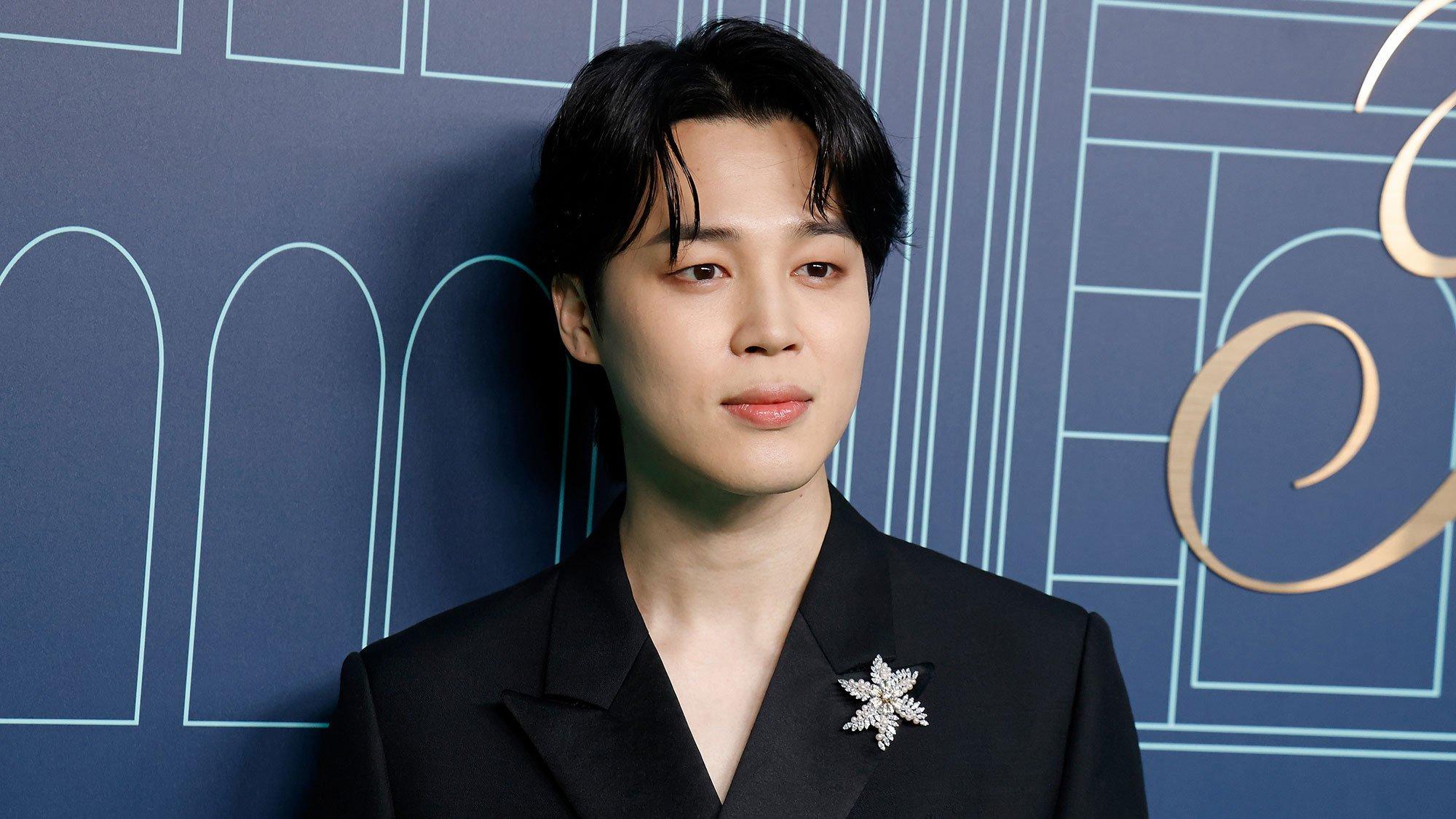
Photo: Taylor Hill/Getty Images
list
5 Takeaways from BTS Jimin's New Album, 'MUSE': A Bold Exploration Of Love And Inspiration
Jimin's second solo project, 'MUSE,' showcases his artistic growth and versatility, featuring a blend of nostalgic sounds, personal reflections, and standout collaborations.
K-pop juggernauts BTS are still on hiatus due to military enlistments, except for Jin, who was discharged last month. Yet, all members remain booked and busy in their solo endeavors.
Documentaries, travel shows, special singles — you name it, they carefully prepared it before starting their duties. And after new records from j-hope (HOPE on the Street) and RM (Right Place, Wrong Person) this year, the next in line is Jimin, who dropped MUSE today.
The album comes almost a year and a half after his debut EP, FACE, which placed Jimin as the first South Korean soloist to top Billboard's Hot 100 chart. In it, the Busan-born star proved his versatility and prowess standing on his own, captivating audiences old and new with his sensitive charisma.
In MUSE, Jimin introduces a new facet of his musical identity: bolder and more confident, but still a big softie at heart. To celebrate the beginning of a new era — and to ease the wait until his discharge next year — here are five key takeaways from Jimin's latest release, MUSE.
It's Another Jimin-Led Production
FACE was a proper introduction to Jimin's artistic vision, with him contributing to every aspect of the project and co-writing all of its tracks, minus the instrumental "Interlude: Dive."
Now, he takes it up a notch for MUSE, showcasing his growth by co-writing six out of seven tracks, and co-producing two of them: "Rebirth" and "Interlude: Showtime." Once again, Jimin had a hand on all of the album's components, including its concept and visuals, and bore down another layer of his ever-evolving skills.
If FACE introduced us to a vulnerable and sometimes desperate Jimin, MUSE charges forward with main pop boy energy, tender but commanding, sweet but sassy. It works both as a gift to fans and a tool to get to know Jimin even deeper.
He’s Still In Search Of His Muse
"We never met, but she's all I see at night/ Never met but she's always on my mind/ Wanna give her the world/ And so much more/ Who is my heart waiting for?" Jimin sings in MUSE's track, "Who." As the lyrics suggest, MUSE's main theme is Jimin's journey to find the source of his inspiration — his muse.
The album's seven tracks are all interconnected by love and longing, with Jimin searching for the one but getting lost in the way, and back at it once more. Through this perspective, he continues his path of self-discovery. After looking at his own FACE in the mirror, who else does he see? Who else instigates him enough to make art?
A Stellar Team Backs Up The Effort
To write and produce MUSE, Jimin enlisted longtime collaborators Pdogg, Ghstloop, Evan, and Supreme Boi. They have also been working with BTS for years, and know just what Jimin wants and needs in his songs.
But to make this album even more special, Jimin also collaborated with a fresh crop of professionals. Lead single "Who" was co-written and co-produced by Jon Bellion, Pete Nappi, and Tenroc, while Ayo the Producer and Kofo co-signed the fan-dedicated "Closer Than This." OneRepublic's Ryan Tedder helped pen "Be Mine," and Tommy Brown has writing credits on "Rebirth" and "Smeraldo Garden Marching Band (feat. Loco)."
Aside from Korean rapper Loco, MUSE also features American actress and singer Sofia Carson on the smooth duet "Slow Dance." Together, these names assembled a cohesive, yet diverse LP, brimming with influences from several decades, genres, and countries at once.
The Smeraldo Flower Makes A Comeback
Back in 2017, when BTS was in their LOVE YOURSELF era, they also introduced to their lore a fictional blue flower named Smeraldo. Symbolizing "a truth that cannot be told," its legend was better explored in the track "The Truth Untold (Feat. Steve Aoki)," and offered important clues to understanding that era's messages.
However, as years passed, the Smeraldo flower was largely forgotten from BTS's new works — until MUSE. Here, Jimin brings back the blue flower as one of the albums' visual concepts, and as the main motif behind pre-release "Smeraldo Garden Marching Band (feat. Loco)."
According to a press statement, the track's lyrics "express the longing to confess and find love on behalf of those unable to articulate their feelings," hence the use of Smeraldo. As for its curious title — loosely inspired by The Beatles' 1967 album Sgt. Pepper's Lonely Hearts Club Band — it came first as a casual nickname between Jimin, Pdogg, Ghstloop, and Evan while they worked together on FACE, and eventually became real.
It’s Packed With Nostalgia
If you miss Justin Timberlake's Justified sounds and other early-2000s gems, MUSE is here to take you on a nostalgic trip. Inspired by pop, R&B and hip hop from that era, Jimin gave his latest album a vintage, cozy veneer.
These references are predominantly visible on "Who" and its delightful guitar strums, but "Slow Dance (feat. Sofia Carson)," for example, sounds like an updated version of Usher and Alicia Key's "My Boo," and "Be Mine" could be the 2020's lovechild of Santana's "Maria Maria" and Sean Paul's "I'm Still In Love With You."
Another strain of references can be seen in "Smeraldo Garden Marching Band (feat. Loco)," which extends The Beatles' inspiration to experimental samples and marching band percussion, and creates a quirky piece that strays away from any current trends. "Interlude: Showtime" drinks from the same source, featuring a circus brass and drum line that introduces us to the singularity of "Smeraldo Garden."
While infused with nostalgia, MUSE still appeals to today's tastes, and offers a seamless, polished listen. It stands as a testament to Jimin's artistic growth, and while he might not have found his muse yet — he is certainly a source of inspiration for many.
More BTS News
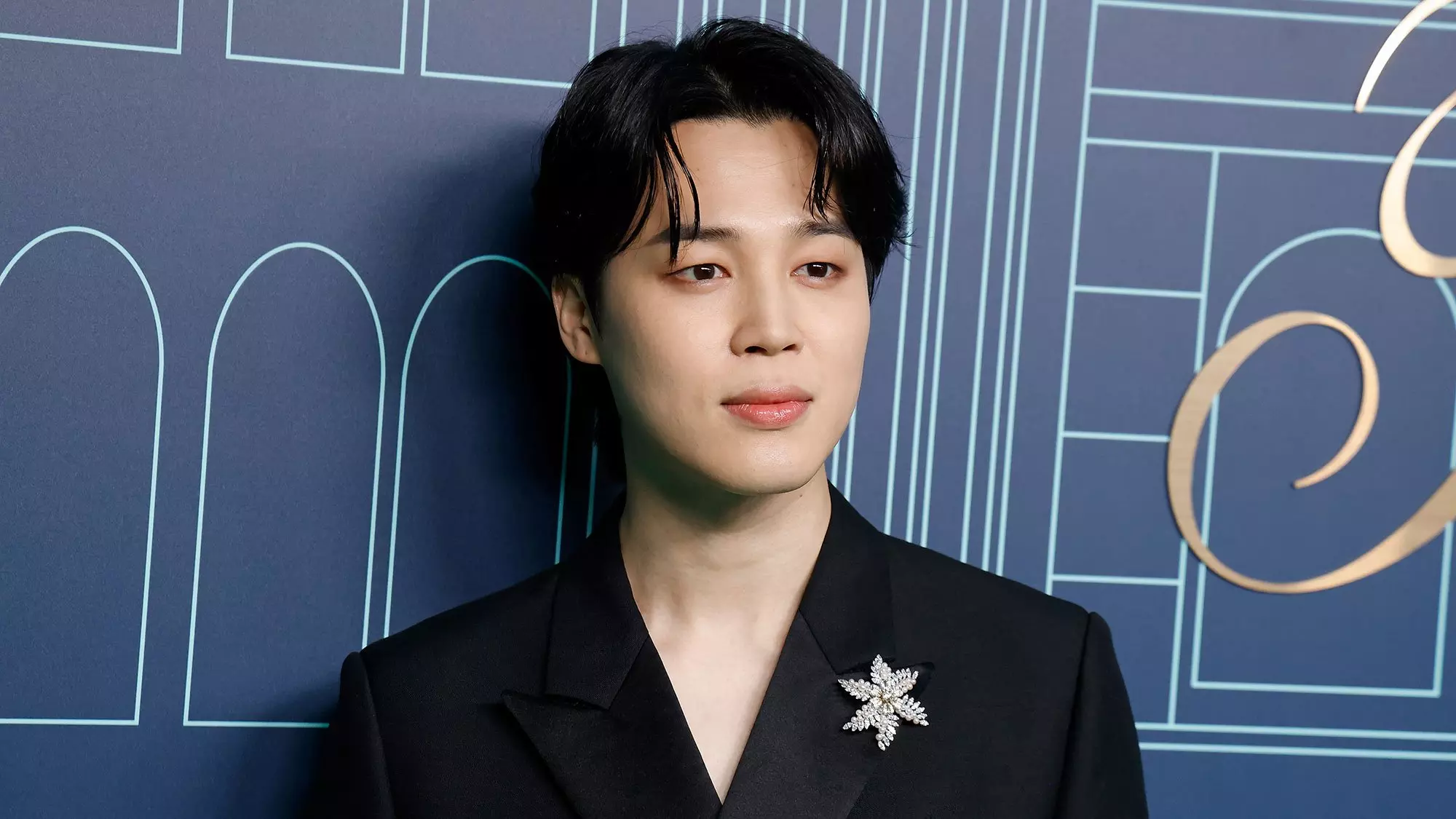
5 Takeaways from BTS Jimin's New Album, 'MUSE': A Bold Exploration Of Love And Inspiration

GRAMMY Museum Partners With HYBE For New K-Pop Exhibit 'HYBE: We Believe In Music' Opening Aug. 2
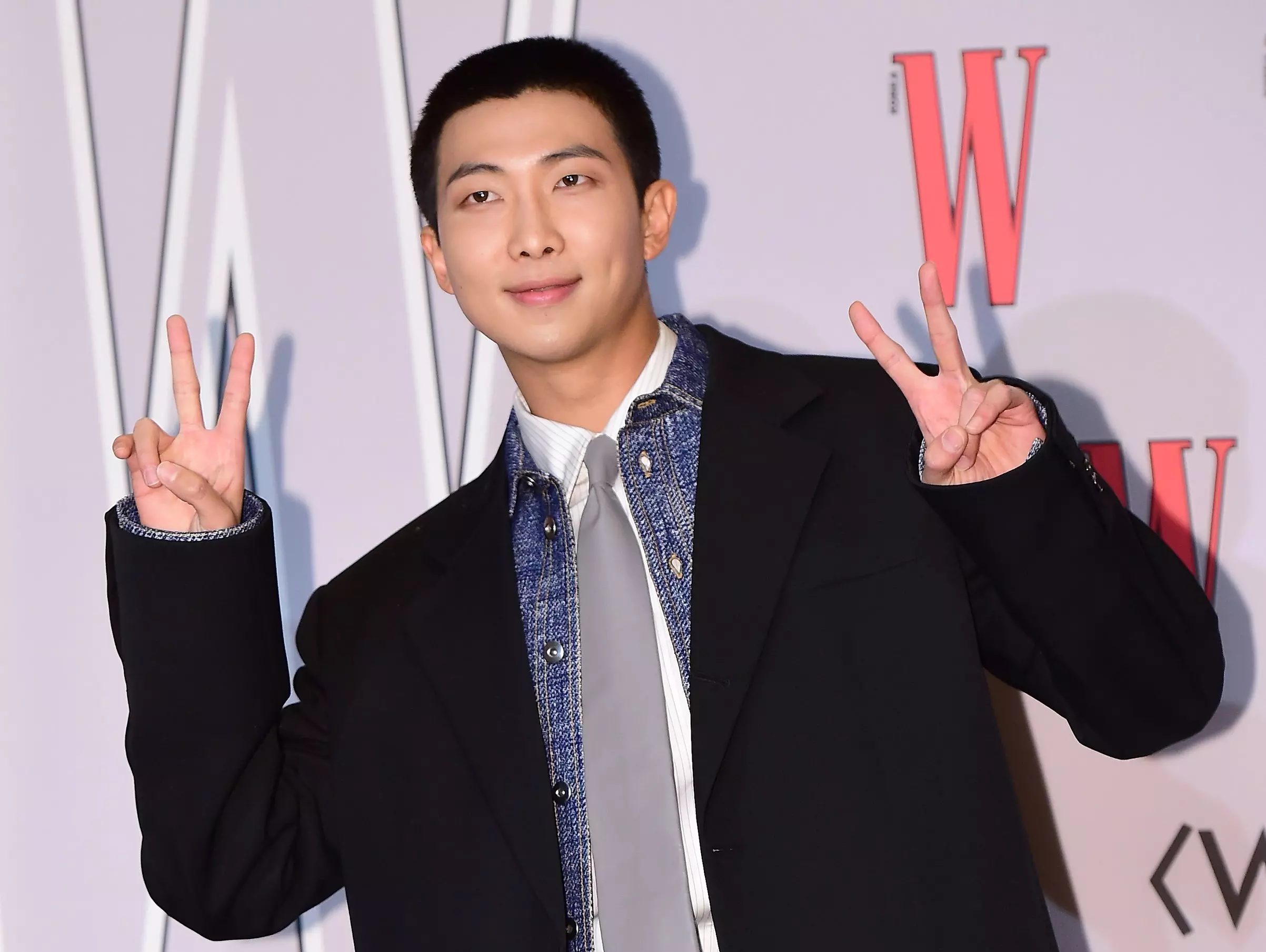
Stream RM's New Album 'Right Place, Wrong Person': See The Tracklist, "LOST!" Video & Special Guests
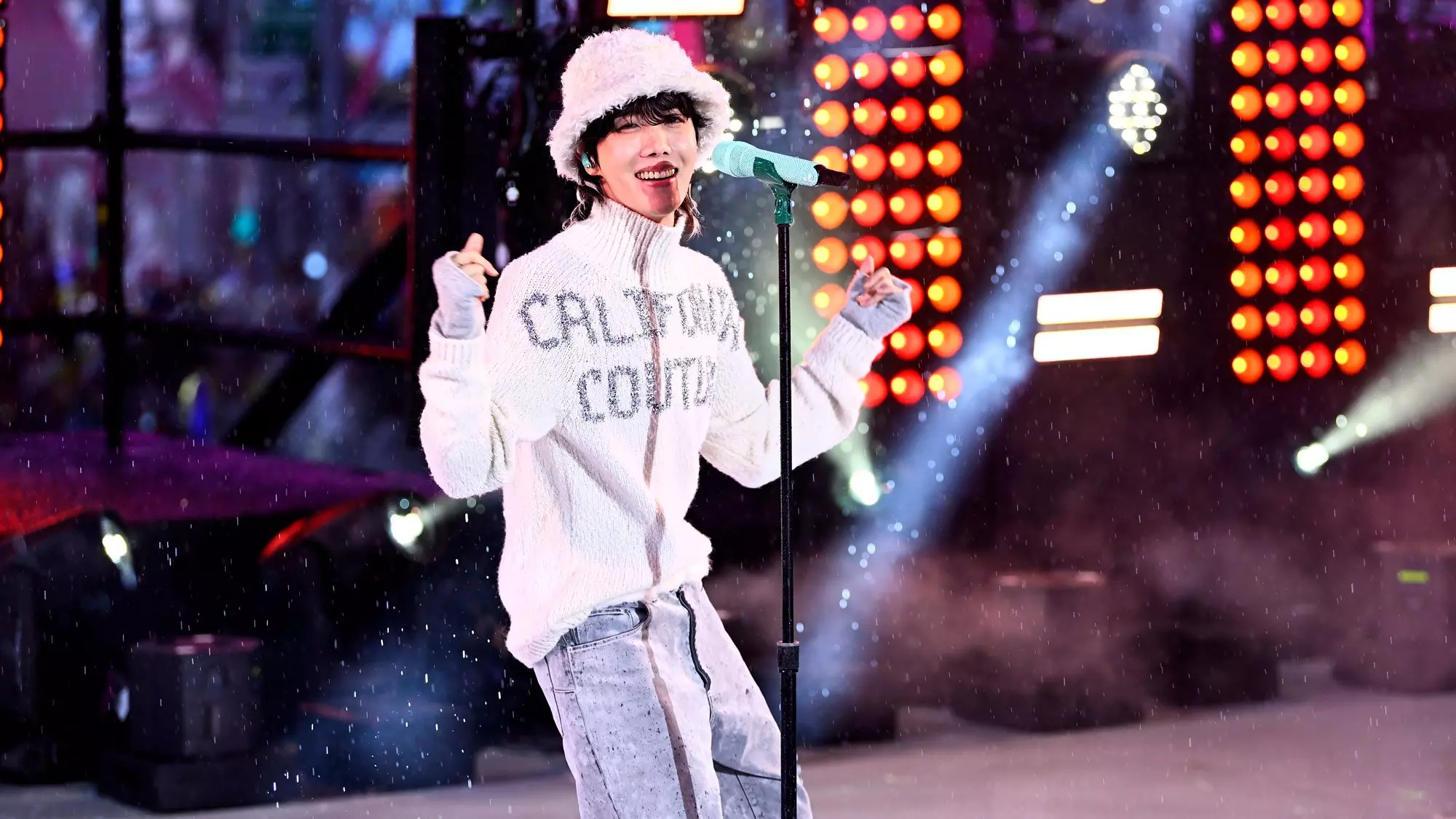
J-Hope's Road To 'Hope On The Street Vol.1,' From Falling Back In Love With Dance To Tying Together His Global Influences
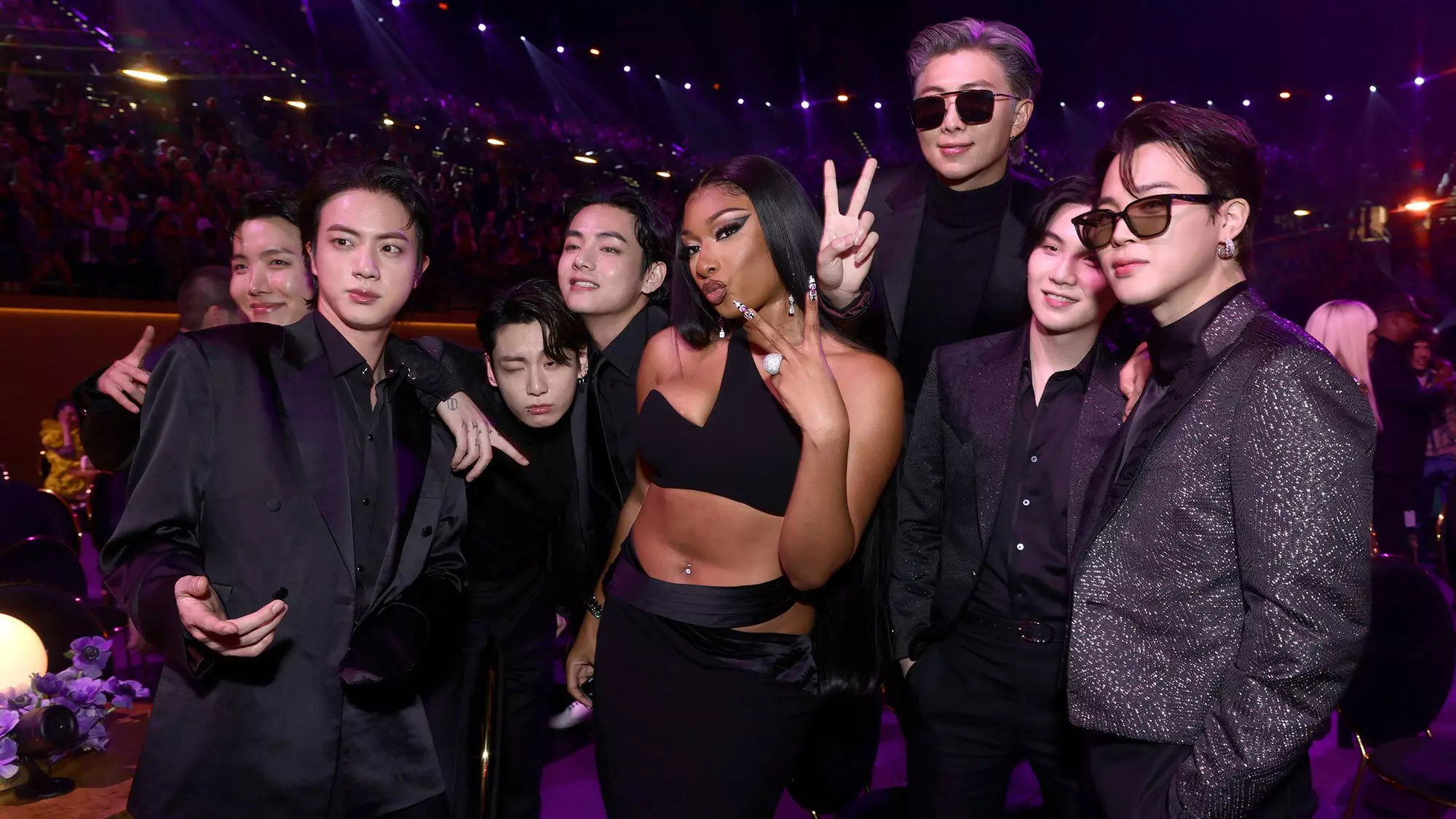
9 Essential K-Pop/Western Collabs: From BTS And Megan Thee Stallion, To IVE And Saweetie
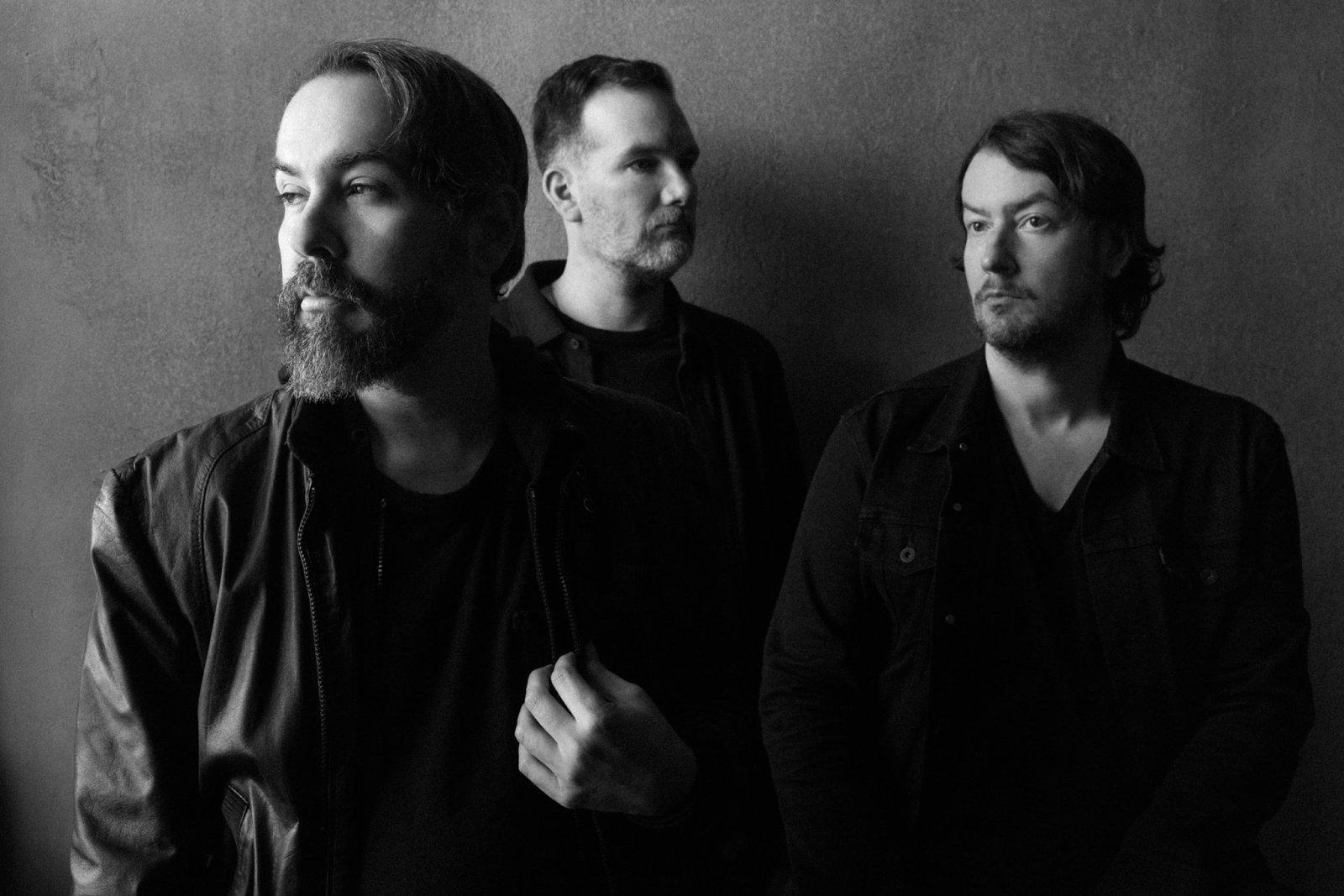
Photo: Ebru Yildiz
interview
X's Mark The Spot: How Cigarettes After Sex Turn Difficult Memories Into Dreamy Nostalgia
"We’re all in the same boat," Greg Gonzalez says of the band’s new album, ‘X’s.' The frontman speaks with GRAMMY.com about how channeling Madonna and Marvin Gaye helped him turn his memories of a relationship into sublime dream pop.
When Greg Gonzalez sat down to start writing the next Cigarettes After Sex album, the dream pop frontman relied equally on memories of heartbreak and the ballads of the Material Girl. "‘90s Madonna was a big influence on this record," he tells GRAMMY.com with a soft smile.
Though the end result won’t be mistaken for anything off of Ray of Light, that timeless, almost mystic cloud of emotionally resonant pop carries a distinct familiarity on Cigarettes After Sex's new album, X’s.
Cigarettes After Sex has championed that sweet and sour dreaminess since their 2017 debut. Two years after that self-titled record earned rave reviews and was certified gold, the El Paso, Texas-based outfit reached even deeper for Cry. And while those records cataloged Gonzalez's heartbreaks and intimacies in sensual detail, Gonzalez knew he could reach deeper on the band’s third LP: "These songs are just exactly as memory happened."
Arriving July 12, X’s fuses Cigarettes After Sex's dream pop strengths with ‘90s pop warmth and ‘70s dance floor glow. Always one to bring listeners into the moment, Gonzalez imbues the record with a lyrical specificity that gives the taste of pink lemonade and the tension of a deteriorating relationship equal weight. On X’s, the listener can feel the immediate joy and lingering pain in equal measure.
"This is specific to me and what I'm going through, but then I go out and talk to people on tour, and they’re like, 'Oh, yeah, I went through the exact same thing,'" Gonzalez says.
Leading up to the release of X’s, Gonzalez spoke with GRAMMY.com about the appeal of ‘90s Madonna, finding a way to dance through tears, and his potential future in film scoring.
Tell me about the production process for this record. You've always been able to build nostalgic landscapes, but this record feels smoother than before. Were there any new touchpoints you were working with?
That was the thing: trying to make the grooves tighter. It was coming from more of a ‘70s Marvin Gaye kind of place, trying to make it groove like a ‘70s dance floor.
Which is an especially interesting place to be writing from when dealing with that line between love and lust.
Yeah. The stuff we've done before was really based on the late ‘50s, early ‘60s slow dance music. But it was always supposed to be dance music; I always wanted Cigarettes to be music you could dance to, even if it was a slow dance.
When I think of pop music and I think of songs that really feel powerful, they usually make you want to groove in some way. I love a lot of music that doesn't do that: ambient music or classical or some jazz. But there's so much power to music that makes you want to move. And I found throughout the years that I could just never get enough of the music that makes you want to dance. So I thought, Okay, the music that I make should be really emotional. It should feel like music you could actually cry to, but in the end it should make you want to also move in that way.
It’s the physical necessity of the music, some forward motion to match the emotional journey. I’d imagine that is related in some sense to the fact that you’re writing in a somewhat autobiographical way. Is that a way of not getting stuck in the stories, in the feelings?
I'm writing it for myself. Of course, I can't help but picture the audience in some way. But it's never like I'm writing it for them.
There is an audience that I can visualize that would like the music. [Laughs]. There have been times where we’re recording and I close my eyes to visualize an arena or a stadium to picture the music in that setting. It’s a nice feeling. And that's just based on the music that I love that I thought had similarities.
Is there any particular music that you love that fills that feeling?
There's so much music that I was obsessed with, but with Cigarettes I narrowed it down. Since I was a kid, I did every kind of style I could do. I was in power pop bands, new wave, electro, metal, really experimental bands.
But when I finally sat down and said, "Let me make an identity for Cigarettes and make it special," I had to think about what my favorite music was and what music affected me the deepest. And it was stuff like "Blue Light" by Mazzy Star or "Harvest Moon" by Neil Young or "I Love How You Love Me" by the Paris Sisters. And I kind of put all that together and that became the sound of Cigarettes. And now I do that every time I make a record: I'll make a playlist of what I want it to feel like. I mentioned Marvin Gaye. I feel like ‘90s Madonna was a big influence on this record.
Madonna in the ‘90s? No one could touch that era. I don't know when the last time you listened to that music was, but…
No, I grew up with Madonna and I used to watch the "Like A Prayer" video on repeat. It blew me away. But then I came back and I got into the ‘90s stuff, like "Take A Bow" and that record Something To Remember. It's all of the slower tunes. And that was a big influence, especially songs like "Rain."
You clearly have a diverse musical appetite, but you’ve also highlighted people with such identifiable voices — something that I think is true for Cigarettes as well. Your vocals are so front and center in the identity of the project.
That's great. The singer pretty much makes the song for me, whatever I’m listening to. The entire spirit comes down to the vocals. I'll hear a song like "Take A Bow" and be like, This feels so special. What if I made something that felt like this? If I told someone this [record] was based on Marvin Gaye and ‘90s Madonna, I don’t know if they would think it really sounded like that. It's more just trying to capture the spirit of what those records feel like.
That's what's cool about it too: You can remember those songs that were filling the air back in the ‘90s and what those feelings were, what you were up to, and draw a line between that and whatever's happening now that I wrote about.
You don’t seem like the type of person to avoid negative feelings when you come up against them in that process either. The songs feel like you just embrace it, even if it's really painful.
I've always felt that's the best way for me to go through things, to face it head on. It's supposed to be painful. You have all these really great moments with somebody and all these great memories, and then when it ends, honestly, that's the way it goes, right? That's the trade off.
Yeah, but not everybody goes through a breakup and then makes an album about it. Isn’t that like returning to the scene of the crime? How does it feel to deal with it in that way?
That's funny. The thing was, I was writing a lot of this stuff while I was still in a relationship. It took so long to finish it.
Finish the album or finish the relationship? [Laughs.]
Actually both. But yeah, the record is mostly about that one relationship, but there are little diversions with some of the songs. A lot of the key images and songs are based on that romance and little memories that I took from it.
I like that I have all those moments kind of set in stone. It’s hard to listen to this record too because I'll just really see these moments, all these memories, and it can be a bit much to flash back to all that stuff and see it so vividly. But I love that I have it. Those memories meant so much and I’m glad that they're collected and displayed in this way.
And you were able to collect them when it was happening as opposed to having some time between, which could warp those memories. Writing and recording when you’re as raw as possible makes sense, so what you capture is really honest.
That's why I like to write these songs that are as honest as possible or as autobiographical as possible, with a lot of details. If I'm writing a song and someone heard it, they would know it was about them just based on all the imagery that's in that song. It's like a little letter to them. It could be like a secret little letter to someone.
That makes me think of "Holding You, Holding Me," which is so lovely and feels as immediate as anything you’ve done.
It was the pandemic, and then the other girlfriend I had at that time, we were living in downtown L.A. and just wanted to get out of the house and stay somewhere nicer for a while. And we went to this AirBnb that was in Beverly Hills with this beautiful backyard. The song was meant to be kind of Fleetwood Mac-ish, like "Gypsy" or "Sara", that nice ‘70s country pop feel.
Over the years I’ve noticed you frequently use taste as a sensory link in your songs, which really creates an evocative moment — I’m thinking about references to candy bars and lemonade on this album. What is it about that sense that sticks out to you?
If I'm going back to memory, then that's just what really happened. We went to the store to go buy wine and candy because that was the vibe that night. "Let’s watch movies and get red wine and some candy bars." And it was just a big memory that we walked outside and it started raining. I think too, what's nice about using objects is that it gives you so much mood in a song. You can tell what the feeling is of that moment when you put those things together.
And it can have an almost universal understanding. People will understand what it means to have a "candy bar night."
That's the craziest thing. It's almost like you're trained to write universally, meaning generically. Like, "Oh, this is a song that everyone can like and the lyrics can be really simple." But I’ve found that the songs that are really detailed and were more personal stories, a song like "K." from Cigarettes After Sex, those are the songs that everyone really loves, the ones that take up being really specific.
I suppose that's pop's way of being a doorway. When you're talking about your personal experiences, somebody is going to enter into it and feel like you're singing about theirs.
You realize that we're all in the same boat. This is specific to me and what I'm going through, but then I go out and talk to people on tour, and they’re like, "Oh, yeah, I went through the exact same thing." I feel very lucky that most people I talk to that love [our] music are always saying that. It’s so special.
It makes me trust my instincts. That's the hard thing when you're writing. You're wondering, Is this too much to disclose? Is this too much information? [Laughs.] That instinct is really important to know, to trust it. That's the tough one. That's what's also therapeutic about it too. You want to share things that feel really personal because then you can process them. You can really start to unpack what those moments meant and what they can mean going forward. It gives me more confidence when I hear that kind of stuff from people.
What then is it like when you sing it for a crowd? You’re performing, but you can’t fully separate the emotion that inspired that song.
That's tough because, ideally, if I did my job well enough writing the song, then it should be hard to sing live — especially if I really see those moments when I'm singing it. It could bring me to tears, honestly, because it should feel that intense. And it's even worse if I look in the crowd and someone's crying. I can't even look at them. And that happens very often. If I started crying, my voice will stop.
That brings a real cinematic feeling to your music too, which makes me think you’d be good at scoring a film. Is that something you’d tackle?
I'm definitely obsessed with film and have been since I was a kid. The idea that I keep saying — and I almost feel like I'm going to jinx it because I keep saying it too much — is that I really want to direct and write something. And I've written some ideas down for screenplays and things. It seems like it's hard to transition from musician to filmmaker and really make it stick. But that would be something I want to do in the next 10 years. I'm giving myself 10 years. [Laughs.]
Latest News & Exclusive Videos

2024 Paris Olympics Opening Ceremony: Watch Celine Dion, Lady Gaga, Gojira & More Perform

Ice Spice Is The Drill Queen On 'Y2K!': 5 Takeaways From Her Debut Album

New Music Friday: Listen To New Songs From Halsey, MGK And Jelly Roll, XG & More

Watch Young MC Win Best Rap Performance In 1990

The Red Clay Strays Offer A New Kind Of Religion With 'Made By These Moments'
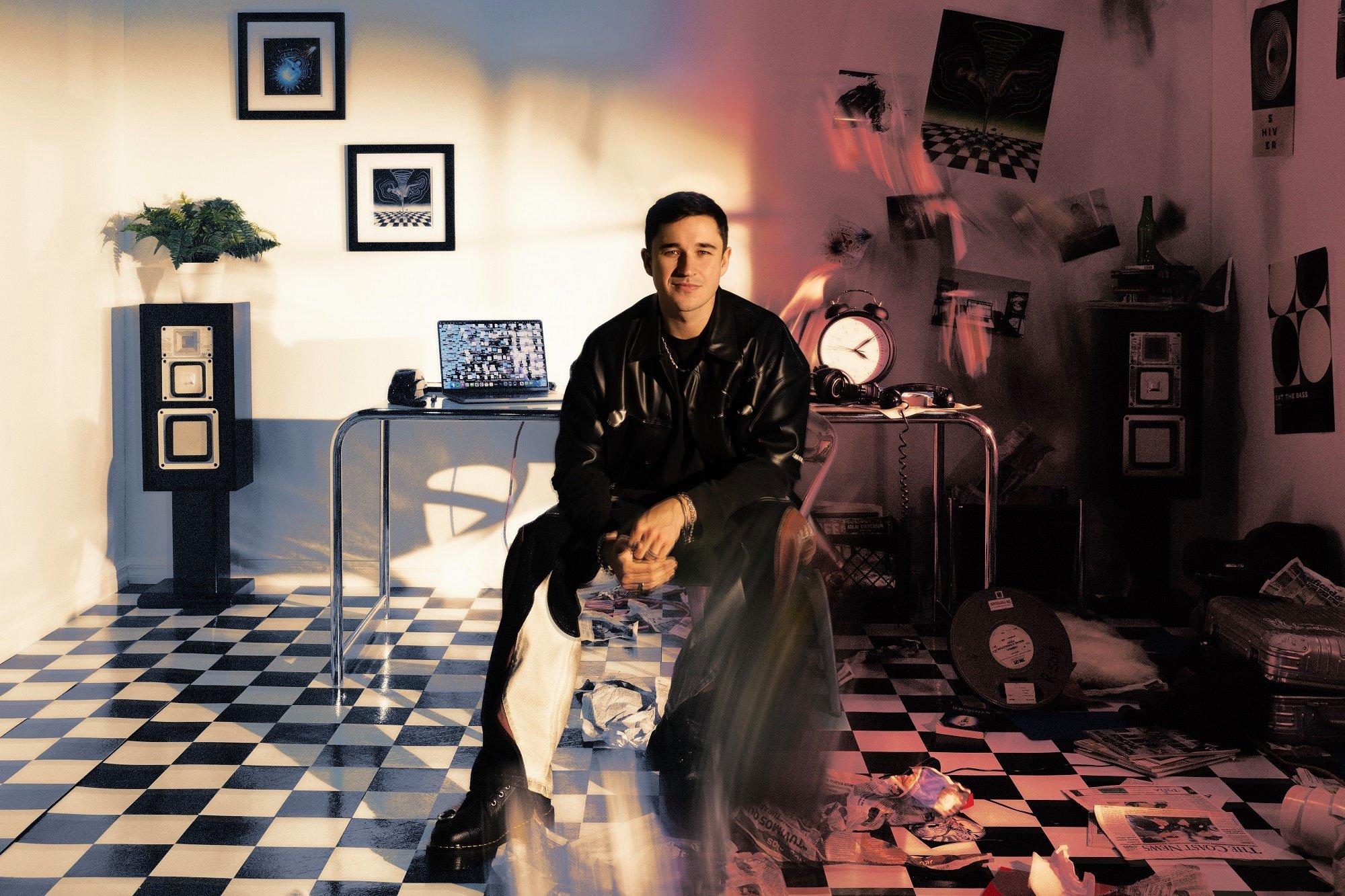
Photo: Dana Trippe
interview
Finding 'Comfort In Chaos': John Summit On The Journey To His Debut Album
"I always wanted to do an album," the DJ/producer says of 'Comfort in Chaos.' Although Summit has graced many major stages, creating his full-length debut took "over 10 years of producing and eight years of releasing music to get confident enough."
"I'm a little hungover, but I'm hanging in there," John Summit admits with a chuckle. The DJ/producer had stayed out late the night before (as DJs typically do) but for once, it wasn’t for work. Instead, he and his friends went bar- and club-hopping — "normal people stuff," Summit calls it. When asked how often he gets to do that these days, he laughs again. "Literally never. I felt like it was the first time in years."
Given the past few years, it’s understandable. Summit was still early in his career when he released his breakout hit, 2020’s "Deep End," a couple months into global lockdown. He maintained that momentum with a long string of releases including "Thin Line" with Guz, "Sun Came Up" with Sofi Tukker and "Human," the latter producing his first U.S. Dance Radio No. 1.
When live events powered back up, Summit quickly graduated to playing major venues and main stages. In the last two years, he’s DJed everywhere from Movement Detroit to Manchester, Turin to Tulum, and NYC to nearly every Ibiza superclub; in between, he launched his Experts Only record label. This year, Summit closed out EDC Las Vegas and Coachella; in June, he headlined a show at Madison Square Garden. Being a dance music superstar is a marathonic job, but a glance at his off-the-cuff social media posts suggests he’s more than up for the challenge.
Despite his hectic schedule, Summit somehow carved out time to write his debut album, Comfort in Chaos. In a way, it showcases his past, present and possible future. Recent single "EAT THE BASS" delivers the booming energy of the club tracks upon which he made his name; others, such as Billboard Top 10 hits "Where You Are" and "Shiver" with Hayla, are examples of his current evolution into lyric-focused songs, equally rich in melody and emotion. There are more surprises, still, as Summit explores sounds beyond his house and techno playground. "[This is] exactly the kind of music I've always wanted to make," he says, "but I never had an outlet or a reason to because they're not dance-floor-focused tracks."
The album’s sonic extremes also represent the duality between John Summit, the artist we see living his best life, one party at a time; and John Schuster (his given name), who’s introspective, who isn’t always confident, and who’s experienced "the lows" of returning from a show to an empty hotel room. "Now I'm comfortable where I am in life and I feel like I can tap into that [emotion]," he says. "It's cool to be able to show that side of me."
Before Comfort in Chaos’ release on July 12 via Darkroom/Experts Only, Summit tells GRAMMY.com how he got to this milestone.
This interview has been edited for clarity.
How long has the idea of a debut album been in your mind?
It's been in my mind since the day I started making music. I really got into songwriting four years ago. I did "Summertime Chi" with Lee Foss, which is an original written vocal, and then I did "What A Life" with Stevie Appleton a year later. That was received really well by my fans and I'm like, Oh, I don't have to just use samples. I can actually write completely original music.
Ever since then, the music has gone crazy. The first single off the album that I made was "Where You Are" with Hayla, which came out over a year ago, and that's when I feel like the ball really started rolling. In November, I took a month off and wrote pretty much the whole album in London and it really all came together then.
An entire month off? That seems rare.
Yeah, it's insane for me. I haven't taken a month off since I started touring, but I knew I had to do that, especially to make music that's not just meant for the dance floor. I produce on the go. I produce on planes and everything, but when you're always playing shows, you always make music just for the shows.
When you can actually take time off, I feel like you can make music that's actually meant for those rainy London days meant for just chilling with friends and stuff like that. So it was cool to make an actual body of work instead of just festival music.
What did that month look like for you in terms of the creative process?
I got this studio house for a month; this crazy house that has a couple of studios in it. My bedroom's at the top and I would take a slide down to my studio literally from the bedroom. I had a session every day for 30 days straight, and I just invited all the singers and producers I worked with. Sub Focus for example, he lived in London and then Hayla, Julie Church, Paige Cavell.
Pretty much everyone I work with is UK-based, so it was kind of a no-brainer to go to London for that. It was a lot of fun because we just make music all day, then drink at night and party. That's when you can share all your ideas with other people, at night when you're having drinks, wanting to call it banter. It was great.
To speak more about the variety of music that you make: You initially broke out with very club-forward tracks like "Deep End." But as you said, you've since honed a more melodic, songwriting-based sound. Was it a conscious evolution or did it just gradually happen over time?
I feel like it was just an evolution as an artist. House music is a very loop-based sound where it's, what, a four-by-four kick drum and an eight-bar loop… I kind of graduated from that to doing full-written songs [like] "Where You Are." But it took a lot of time.
I was always writing songs during that process, but they weren't good. Writing a full song, it's like going from a short film to a movie. I always wanted to do an album, but it really did take me over 10 years of producing and eight years of releasing music to get confident enough to be able to do this.
How do you tap into the emotion of those songs, especially given the image that you portray online?
I guess that's the whole purpose of the album: That I've been portraying this John Summit image my whole career, but in reality I'm John Schuster. The John Summit image is obviously an entertaining party guy that loves to have a good time; in reality, outside of the club, I'm just sitting at home making music, and I want to show the more introspective side of me.
I've been neglecting my emotions the past few years, especially after quitting the accounting job five years ago. Then I was just in this full party mindset, but now I'm comfortable where I am in life and I feel like I can tap into that. So it's cool to be able to show that side of me.
Who is that more introspective John Schuster?
Someone that, I guess, shows that I'm not really a 100 percent confident all the time. That I've experienced very high highs, but very low lows as well. I mean, John Summit has the biggest highs on stage, but then I go back to my hotel room and I'm by myself and experiencing the lows and being by myself all the time. So I guess showing that kind of emotional side is fun for my music at least.
Absolutely. I imagine it’s difficult going not from zero to a hundred, but a hundred to zero.
Exactly. That's the hard part. Zero to a hundred is the fun part.
If debut albums are like an artist's mission statement, what do you want 'Comfort in Chaos' to say?
I think kind of what I was just touching on, the duality of John Schuster and John Summit. This is the first time I've fully shown my other half. I've been showing it through singles: "Where You Are," "Go Back," "Shiver" and stuff. But to do it in a full album where — especially the intro track where there's really no vocals on it, and it starts experimental and a bit progressive, and then the drop is really just a kick in bass. It's tension-release, which I love in music, but it just shows, not to be too pun intended, the comfort in the chaos that is my life right now.
What brings you comfort in chaos?
That's a good question. Honestly, it's more so me trying to find my comfort in chaos. Because the thing is that if I'm on stage every night, I’ve got to be comfortable up there. The more confident I am, the better show that I do. And so I think I'm finding it now.
It's kind of the whole fake it till you make it. At first I had to get hammered every single night just to get on stage, and now I can get up there without doing that, which is a big stepping stone for me.
So it seems like it's more about the journey than the destination.
Exactly, exactly. It's basically trying to find my comfort in chaos. And I think I've gotten there, so now is the perfect time for the album. I couldn't release that while I'm still not comfortable.
Given how significant Kaskade and deadmau5’s "I Remember" is to your electronic music journey, it must feel very special to have Kaskade on the album.
Yeah, it was kind of a no-brainer. I was able to remix "I Remember" last year, which is huge for me. The track that literally got me into electronic music. Kascade is also from Chicago, and he's the one that introduced me to Hayla, too.
We've been trying to make something work and we just didn't know what direction to go with it. It took a while, but we both love melodic and emotional music and we both love heavy techno, and so we made it work in one song, which is great because the track starts very comforting and it gets very chaotic, so it's very on-brand with the album.
What have you learned from Kaskade, whether directly or from afar?
I've learned patience, and that everything's going to be okay. I'm a very neurotic person; I am very anxious and worry about every little detail, and he's the coolest, calmest guy I've ever met. I think it has to do with just his experience in the scene. Everything I'm experiencing is something he's experienced at some point in his DJ career, and even before Coachella, I was like, "Man, I don't know if I can do this" And he was like, "Bro, you got this. It's easy. Play your music." And I'm like, "Oh s—, you're right." It’s as simple as that. Yeah, he's been a good mentor.
To borrow a word that you've used in another interview, being "unhinged" on social media has played a significant role in building your fan base over the years. How has your relationship with social media changed in terms of the content you share and fan interactions?
I'm still definitely unhinged on social media. That hasn't changed, but it has made me not afraid to show all facets of myself. I've just started showing the more emotional and deeper side of myself, but it is cool that I can say no matter who I am, I have good days and bad days. The fans can connect and resonate with that, which is cool because it was annoying growing up and following artists who are perfect on social media all the time. So I try to be as transparent as possible.
Given the positive response to your collaboration with Subfocus, do you feel more encouraged to get eclectic in your future music?
The Subfocus one was still pretty dance-floor-focused, and I still haven't released anything that's not dance-floor-focused. I mean, obviously in the album there is with the intro, with "Calm Down," with "Undo," with ["Palm of My Hands"] and ["Stay With Me"], so I'm waiting to see how fans like that. But at the end of the day, though, I’m at the point in my career where I don't have to put out things just to please dance floors. I feel like I've kind of made it where now I can experiment more and take risks. Now is when my career is starting to actually get fun.
Latest News & Exclusive Videos

2024 Paris Olympics Opening Ceremony: Watch Celine Dion, Lady Gaga, Gojira & More Perform

Ice Spice Is The Drill Queen On 'Y2K!': 5 Takeaways From Her Debut Album

New Music Friday: Listen To New Songs From Halsey, MGK And Jelly Roll, XG & More

Watch Young MC Win Best Rap Performance In 1990

The Red Clay Strays Offer A New Kind Of Religion With 'Made By These Moments'
